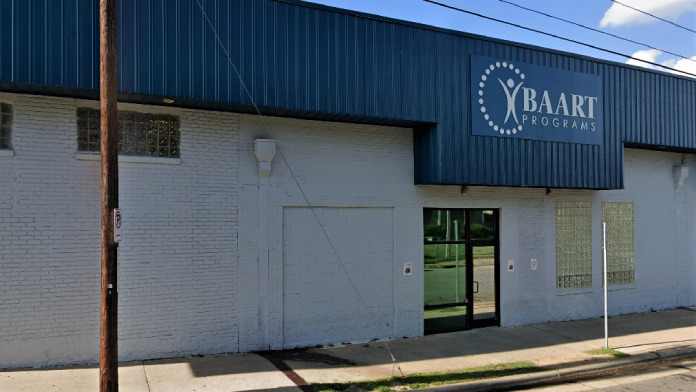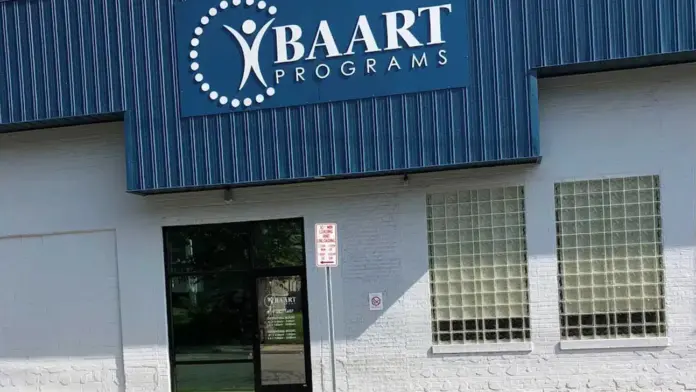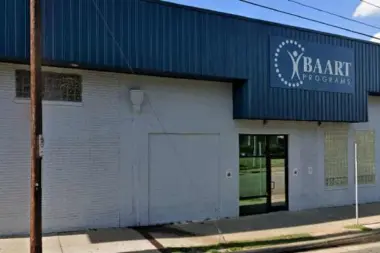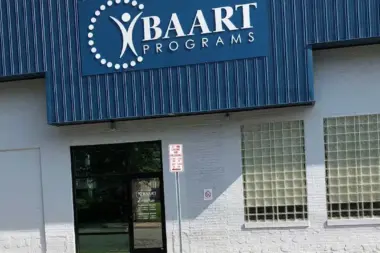About BAART Programs Durham
BAART Programs Durham is an outpatient opioid addiction treatment clinic in suburban Durham, North Carolina. They help members of the Durham community affected by opioid use regain control of their lives. They’re grounded in medication assisted treatment. They use this clinically proven technique to set you on a path to abstinence. They’re all about improving your quality of life so that you can enjoy life to the fullest. This is because opioid use issues can really make life overwhelming and a bit lonely.
With BAART Programs, you can look forward to a future free from opioids. It doesn’t matter how long you’ve been struggling with opioid use issues. Their experienced team will guide you toward wellness in a conducive outpatient setting. They’re very respectful, kind and guided by belief in your dignity as a human being.
When you arrive at the clinic they’ll receive you warmly and fill you in on what the program is all about to ensure you’re fully on board. They’ll then conduct an intake assessment including medical checkups. Based on your assessed needs they’ll create a personalized care plan to tackle the challenges you might be facing in your healing journey.
Methadone Maintenance Treatment in Durham
Medication assisted treatment pairs FDA approved meds with counseling to heal the whole person. BAART Programs Durham can offer a prescription of either methadone or buprenorphine depending on your personalized care plan. These meds eliminate uncomfortable withdrawal symptoms and curb cravings when taken as prescribed and at the right dosage.
That is, they tackle the physical symptoms of your opioid use. This allows you to focus on the psychological aspect of things via counseling. BAART Programs Durham offers both individual and group counseling to help you better uncover the underlying psychological issues fueling your opioid use. You’ll learn more about addiction and develop strong coping tools to avoid relapse. This integrated approach involving meds and counseling heals your body, mind and soul.
Affordable Treatment and Wraparound Support
BAART Programs Durham keeps costs super low by accepting Medicaid, Medicare and Medicare Advantage Plans. They also take many private insurance plans. When you finish treatment they’ll connect you with local resources that can support your recovery. This includes housing support, vocational assistance and educational opportunities. You may also connect to medical care or find a self help group for peer support. They’ll support you all through as you transition to life after treatment.
Opioid Addiction Recovery for Pregnant Women
Pregnant women in opioid recovery need specialized care to protect both their health and their baby’s development. Recovery can be more challenging during pregnancy, so extra support helps manage stress and cravings safely. BAART Programs Durham offers specialized treatment for pregnant to keep mom and baby safe.
Convenient Guest Dosing Services
BAART Program Durham offers guest dosing services for people who are traveling or aren’t close to their normal treatment center. This makes it easy to stay on track with your recovery no matter where you are. You won’t have to skip doses or disrupt your treatment plan while you’re away. It’s all about keeping recovery consistent and stress free.
Opioid Recovery in Downtown Durham
Not lost in us is how easy it is to access this facility due to its strategic location. The facility is situated right at the heart of Durham, a bustling and revitalized urban area in Durham County.
The GoDurham bus has routes linking the downtown to nearby cities so locals can easily get here. The I87 corridor offers a direct link when driving from nearby cities like Chapel Hill and Raleigh. The GoTriangle service links to these cities as well.
Be sure to check out nearby East End Park and Durham Central Park if you need a break between sessions. Both are a short walking distance from the clinic. They’re a great place to relax and get soaked in nature.
Latest Reviews
Rehab Score
Gallery




Accepted Insurance
Other Forms of Payment
Private insurance refers to any kind of healthcare coverage that isn't from the state or federal government. This includes individual and family plans offered by an employer or purchased from the Insurance Marketplace. Every plan will have different requirements and out of pocket costs so be sure to get the full details before you start treatment.
Self-pay involves paying for treatment out of your own pocket. You can use savings or credit, get a personal loan, or receive help from family and friends to fund your treatment. If you don't have insurance or your insurance plan doesn't cover a specific program, self-pay can help ensure you still get the care you need.
Medicare is a federal program that provides health insurance for those 65 and older. It also serves people under 65 with chronic and disabling health challenges. To use Medicare for addiction treatment you need to find a program that accepts Medicare and is in network with your plan. Out of pocket costs and preauthorization requirements vary, so always check with your provider.
Military members, veterans, and eligible dependents have access to specific insurance programs that help them get the care they need. TRICARE and VA insurance can help you access low cost or no cost addiction and mental health treatment. Programs that accept military insurance often have targeted treatment focused on the unique challenges military members, veterans, and their families face.
Medicaid is a state based program that helps lower-income individuals and families pay for healthcare. Medicaid covers addiction treatment so those enrolled can use their coverage to pay for rehab. When a program accepts Medicaid the client often pays very little or nothing out of their own pocket.
Addiction Treatments
Levels of Care
Outpatient programs are for those seeking mental rehab or drug rehab, but who also stay at home every night. Their outpatient programs deliver medically supervised treatment in a variety of modalities and settings to meet the unique and specific needs of each individual. They combine evidence-based, medication assisted treatment with counseling and behavioral services in order to offer a full recovery to their patients.
Drug and alcohol addiction often takes a heavy toll on one's body. Over time, a physical dependence can develop, meaning the body physiologically needs the substance to function. Detox is the process of removing drugs and/or alcohol from the body, a process that can be lethal if mismanaged. Medical detox is done by licensed medical professionals who monitor vital signs and keep you safe, healthy, and as comfortable as possible as you go through detox and withdrawal.
Treatments
Opioid rehabs specialize in supporting those recovering from opioid addiction. They treat those suffering from addiction to illegal opioids like heroin, as well as prescription drugs like oxycodone. These centers typically combine both physical as well as mental and emotional support to help stop addiction. Physical support often includes medical detox and subsequent medical support (including medication), and mental support includes in-depth therapy to address the underlying causes of addiction.
Substance rehabs focus on helping individuals recover from substance abuse, including alcohol and drug addiction (both illegal and prescription drugs). They often include the opportunity to engage in both individual as well as group therapy.
Programs
Adult rehab programs include therapies tailored to each client's specific needs, goals, and recovery progress. They are tailored to the specific challenges adult clients may face, including family and work pressures and commitments. From inpatient and residential treatment to various levels of outpatient services, there are many options available. Some facilities also help adults work through co-occurring conditions, like anxiety, that can accompany addiction.
Young adulthood can be an exciting, yet difficult, time of transition. Individuals in their late teens to mid-20s face unique stressors related to school, jobs, families, and social circles, which can lead to a rise in substance use. Rehab centers with dedicated young adult programs will include activities and amenities that cater to this age group, with an emphasis on specialized counseling, peer socialization, and ongoing aftercare.
Clinical Services
Group therapy is any therapeutic work that happens in a group (not one-on-one). There are a number of different group therapy modalities, including support groups, experiential therapy, psycho-education, and more. Group therapy involves treatment as well as processing interaction between group members.
In individual therapy, a patient meets one-on-one with a trained psychologist or counselor. Therapy is a pivotal part of effective substance abuse treatment, as it often covers root causes of addiction, including challenges faced by the patient in their social, family, and work/school life.
Amenities
-
Residential Setting
-
Private Setting
-
Private Transportation
Accreditations

The Commission on Accreditation of Rehabilitation Facilities (CARF) is a non-profit organization that specifically accredits rehab organizations. Founded in 1966, CARF's, mission is to help service providers like rehab facilities maintain high standards of care.
CARF Accreditation: Yes
Accreditation Number: 219203

LegitScript has reviewed BAART Programs Durham as part of their certification program, and has determined that it meets the LegitScript standards for legality, safety and transparency.
LegitScript verified in
Contact Information
800 N Mangum St
Suite 400
Durham, NC 27701




